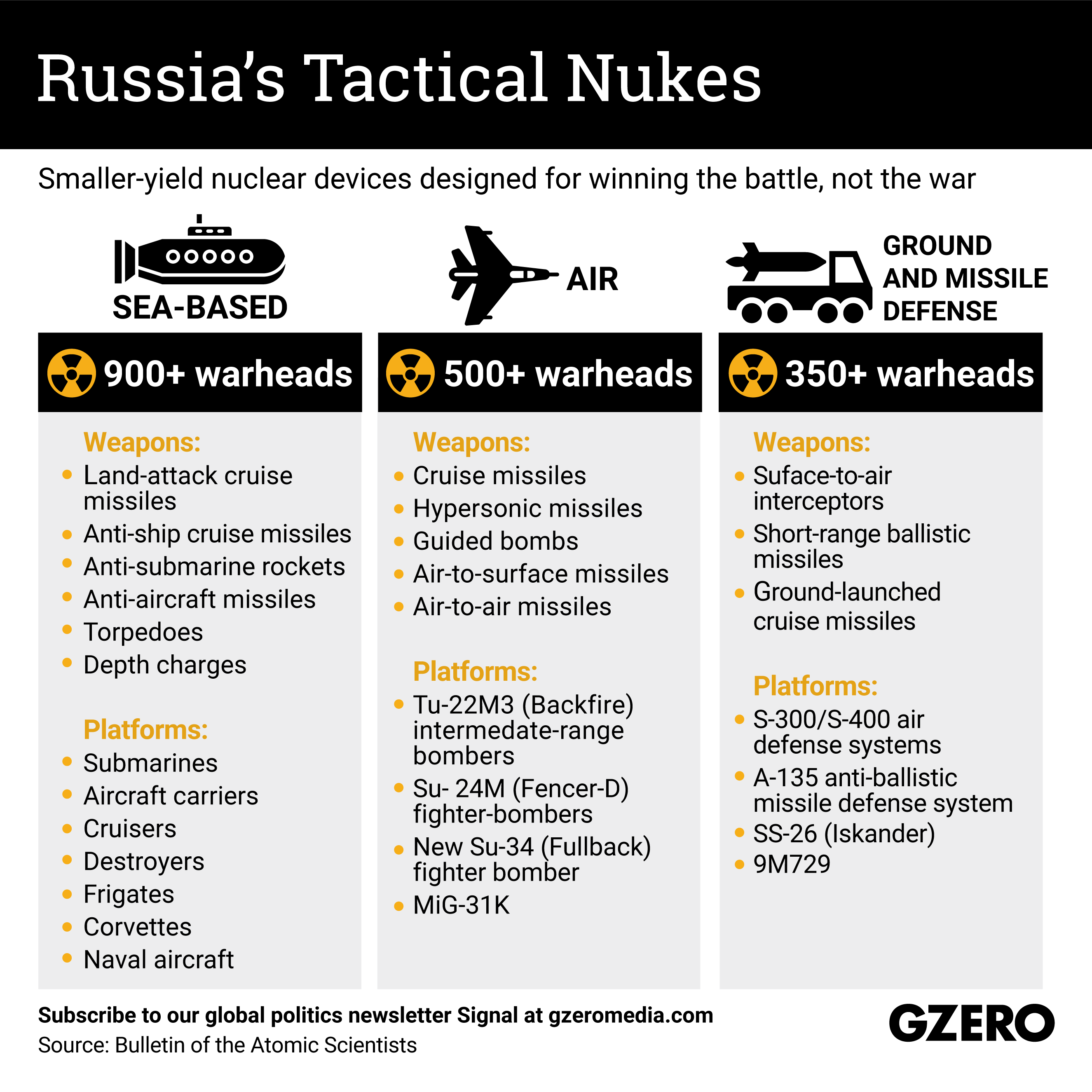Vladimir Putin is upping the rhetoric on using nuclear weapons in Ukraine. But analysts are predicting that if push comes to shove — and that’s a tall order — he’ll likely opt for tactical nukes, smaller atomic weapons that won’t take out entire cities. Tactical nukes, which have been around since the Cold War, have smaller yields, meaning they’re designed to win the battle, not the war. They were developed as politically more acceptable devices, geared to target soldiers and not civilians. However, many of the tactical nukes in Russia’s arsenal — and America’s too — have an an explosive yield many times higher than the bombs dropped on Hiroshima and Nagasaki. Mobile and easy to launch from conventional platforms, this “small enough to use” branding can make these atomic weapons even more dangerous than the larger strategic ones. We feature which of these weapons and launchpads the Russians might use.
This comes to you from the Signal newsletter team of GZERO Media. Sign up today.
